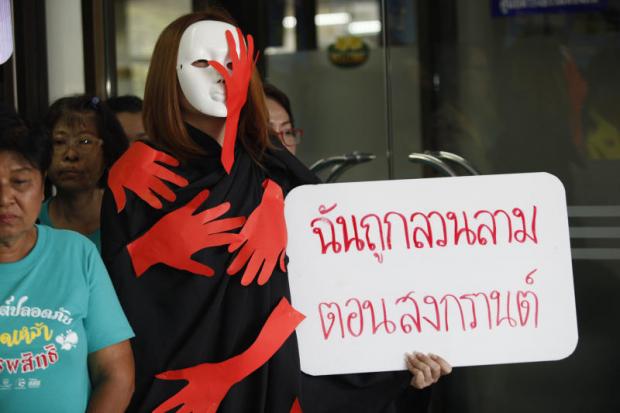
The Pollution Control Department (PCD) on Friday insisted the quality of natural water sources across the country, including in heavily polluted Chiang Mai city, is safe enough to use for water splashing during the upcoming Songkran festival.
"Most water sources are now good quality and safe for splashing during Songkran next week. Similar results have also been found at tourist beaches. The quality of sea water at 80 beaches is at a good level," Somchai Songprakob, deputy chief of the Pollution Control Department (PCD) told media yesterday.
The press conference, which is held annually prior to the Songkran festival, was staged to present the PCD's water quality test results for 59 rivers and six still water sources between January and March.
Regarding Chiang Mai, the PCD insisted the water quality in the canals is at a "fair level" and is considered safe. Chiang Mai and other towns in the North have faced severe air pollution and the public has started to fear that the toxicity in the air will also affect natural water sources.
The PCD has added more oxygen and removed debris from the canal water in Chiang Mai, in order to ensure its safety, said Mr Somchai. The Songkran festival is a big draw for tourists and generates a lot of income.
In total, the PCD survey showed that only 4% of natural water resources are considered to be "very good", while 49% have "good" quality, 37% have "fair" quality and 10% are considered to have "deteriorated" quality.
"Most deteriorated water is found close to crowded communities, industrial parks and places with intensive livestock activity," he said referring to the agricultural area along Tha Chin River in Nakhon Pathom, as well as areas receiving water from industrial activities like in the lower part of the Chao Phraya River in the lower-mid region of the country.
"The good news is we have not found spots considered to be 'very' deteriorated or at the poorest quality such as were found in 2008," he said, adding that the overall quality of natural water sources in Thailand has consistently improved over the past five years.
Three rivers have good-quality water, the upper Tapi River in Nakhon Si Thammarat province, the Kok River in Chiang Rai province and the Li River in Lamphun province, he said.